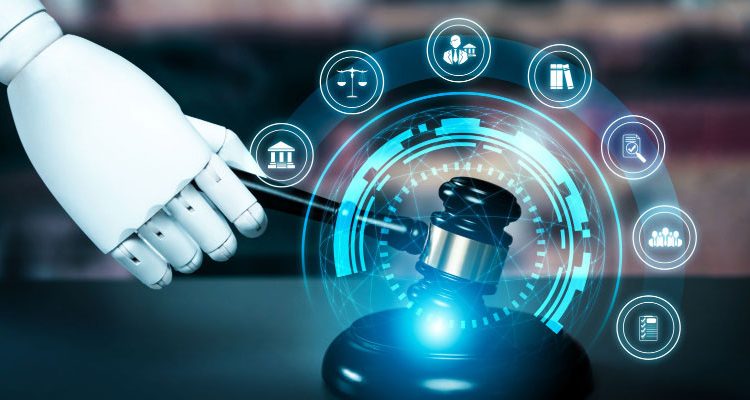by Saakshi Jain
India is on the cusp of an artificial intelligence (AI) revolution, poised to transform various sectors from healthcare diagnostics to personalized education. The potential benefits of AI are vast and can significantly enhance productivity, accessibility, and quality of life across the country. However, the deployment of this powerful technology demands responsible development. India requires a regulatory framework that fosters innovation while mitigating risks. A forward-thinking approach to AI regulation is crucial for the nation’s future, ensuring that the benefits of AI are maximized while minimizing potential harms.
The double-edged nature of AI presents both immense opportunities and significant risks. On the one hand, AI can automate tedious tasks in industries such as agriculture and manufacturing, leading to substantial productivity boosts. In the realm of education, AI-powered tools can personalize learning experiences, tailoring instruction to individual student needs and improving access to quality education, particularly in rural areas where resources are often limited. Additionally, AI has the potential to revolutionize healthcare by analyzing vast amounts of medical data, aiding in disease diagnosis and treatment, and ultimately improving patient outcomes.
However, neglecting the regulatory aspects of AI development could lead to unintended and potentially harmful consequences. Biases present in training data can result in discriminatory AI algorithms that perpetuate existing social inequalities. For instance, facial recognition systems have been shown to have higher error rates for people of color, leading to concerns about their deployment in law enforcement. Furthermore, job displacement due to automation is a real concern, particularly for low-skilled workers who may find it challenging to transition to new roles. The potential misuse of AI in areas like facial recognition and autonomous weapons also necessitates strong safeguards to prevent ethical breaches and security threats.
To navigate these challenges, India’s AI strategy must strike a delicate balance. The aim should be to avoid stifling innovation with overly restrictive regulations while ensuring that the development and deployment of AI technologies are conducted responsibly. Several key areas need to be addressed to achieve this balance:
Transparency and Accountability: AI systems should be transparent, allowing users to understand how decisions are made. This transparency builds trust and helps identify and mitigate potential biases in AI algorithms. For example, if an AI system is used to determine loan eligibility, it should be clear to applicants how the system reached its decision and what factors were considered. Transparent AI systems also facilitate accountability, as it becomes easier to identify and address any discriminatory practices or errors.
Data Privacy: Robust data protection laws are essential in the age of AI. Clear ownership guidelines for AI-generated data must be established to protect individuals’ privacy and ensure responsible data collection and usage. This includes implementing stringent data protection measures that prevent unauthorized access to personal information and provide individuals with greater control over their data. For instance, AI applications in healthcare must handle sensitive patient data with the utmost care, ensuring compliance with privacy regulations and ethical standards.
Human Oversight: AI should complement human capabilities, not replace them. Human oversight is crucial to ensure ethical decision-making and prevent misuse. This involves maintaining a human-in-the-loop approach, where human judgment is integrated into critical AI-driven processes. For example, in medical diagnostics, AI can assist doctors by providing insights and recommendations, but the final decision should rest with a qualified healthcare professional. Human oversight ensures that AI systems are used responsibly and ethically, preventing potential harms that could arise from fully autonomous decision-making.
Skilling and Reskilling: The government must invest in skilling initiatives that prepare the workforce for the changing job landscape brought about by AI and automation. This includes providing education and training programs that equip workers with the skills needed to thrive in an AI-driven economy. For instance, vocational training programs can help workers transition from roles susceptible to automation to emerging job opportunities in the tech sector. Additionally, continuous learning initiatives can ensure that the workforce remains adaptable and capable of meeting the evolving demands of the job market.
Developing effective AI regulations requires collaboration between policymakers, industry leaders, academics, and civil society. Open discussions and public consultations are crucial to ensure that the regulations are effective, adaptable, and future-proof. Policymakers should engage with AI experts to understand the technical nuances of the technology and its potential implications. Industry leaders can provide insights into practical challenges and opportunities associated with AI deployment, while academics can contribute research and expertise to inform evidence-based policymaking. Civil society organizations can represent the interests and concerns of the public, ensuring that AI regulations are inclusive and consider the broader social impact.
In conclusion, India stands at a pivotal moment in its technological journey. By adopting a forward-looking and balanced approach to AI regulation, the country can harness the transformative potential of AI while safeguarding against its risks. Transparent and accountable AI systems, robust data privacy measures, human oversight, and investment in skilling initiatives are essential components of this strategy. Through collaborative efforts and informed policymaking, India can steer the AI revolution towards a future that promotes innovation, protects individual rights, and enhances societal well-being. The journey to AI self-reliance and ethical AI deployment is complex, but with the right regulatory framework, India can lead the way in creating a sustainable and inclusive digital future.

The author Saakshi Jain is a PR professional and student at Takshashila Institute)

